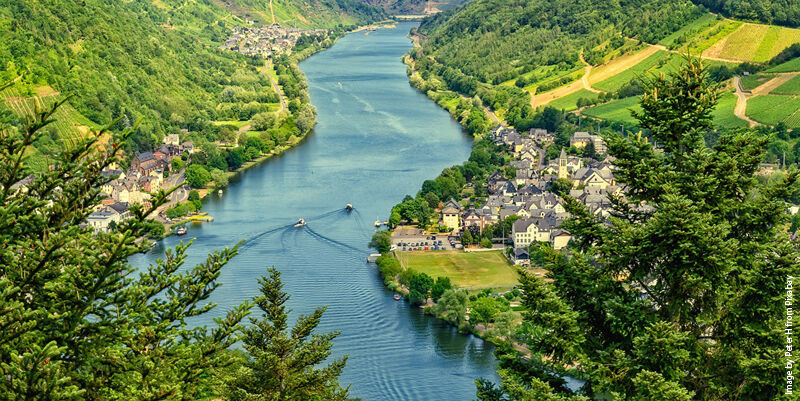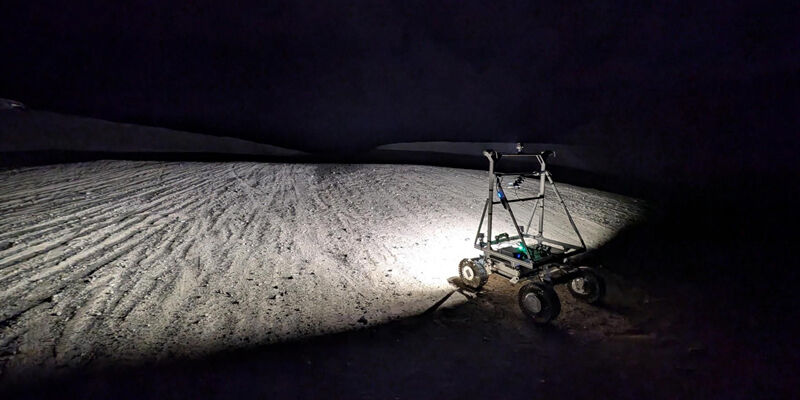National survey reveals third of UK thinks Mount Everest is in Europe and DIY superstore is most visited local âlandmarkâ.Geography Awareness Week and GIS Day help promote geography amongst young people and teach new skills
14th November 2007 â To mark National Geographicâs Geography Awareness Week and GIS Day, ESRI (UK) today announced the results of an independent research study âThe World We Live Inâ, which reveals the most visited âlandmarkâ in peoplesâ local area is the DIY superstore and a third of the public believe that Mount Everest is in Europe.GIS Day (âgeographic information systemsâ) on Wednesday 14th November is a global event with geographical activities taking place in more than 80 countries from Alaska to Jamaica. Around 30 events are taking place in the UK alone â at schools, colleges, universities, community groups and scout groups.Examining what the public know about their local environment and the world at large, the survey of 1,000 people across the UK, shows that people arenât making the most of their local area and still have a low awareness of their wider surroundings. Despite this, the vast majority believed that knowing more about the world we live in would both help cultures live together more peacefully and give a better understanding of global warming issues.Supported by the likes of National Geographic, GIS Day is all about mapping in action â digital maps, interactive software or online resources â which allow people to have an increased understanding of geography, make more informed decisions and bring the subject to life. Coming into the curriculum next year, GIS is helping modernising geography in the classroom. Aimed at showing people the vast extent to which geographic information underpins all our daily lives, GIS Day will be encouraging young people to find out more about geography, inspiring students of all ages with future career paths by working with industry professionals/new technologies and cultivating new skills. âItâs surprising to think that people still donât know where the worldâs highest mountain is and DIY superstores are the most frequently visited place out of the urban and outdoor spaces,â said Angela Baker, Community Programmes Manager, ESRI (UK). âThe survey also highlights how people are not using any means of navigation to help explore their local environment and are merely relying on what they already know. GIS Day is part of our vision to promote geography and new technologies which bring a whole new perspective to the subject.âWhen asked how many countries there were in the world, only a third got the answer right by choosing 193. A third of people thought Mount Everest was either in the Alps or the UK and only half of respondents knew that the Nile was the worldâs longest river. Steve Brace, Head of Education and Outdoor Learning, Royal Geographical Society (with the Institute of British Geographers) said: âGIS is more than just Sat Nav â in short, these digital maps give us better ways of understanding our world by combining and mapping different types of information. So it might be geographers comparing data on a previous heat-wave, with concentrations of elderly people in London Boroughs to help plan health services â or planning the regeneration work that is taking place on the 2012 Olympics site in East London. So we have GIS to thank, both when our Pizzas are delivered piping hot and also when better informed planning decisions are taken in relation to where we live and our local environments.ââGeography helps us make sense of the world and face vital issues such as climate change, energy, food production, the âwar on terrorâ, water and poverty,â commented David Lambert, Professor of Geography Education & Chief Executive of the Geographical Association. âIt also touches all our lives everyday, from businesses to schools, government to hospitals. And with GIS technology its benefits are becoming even more widespread, helping people use geographic information to gain new insights and make more informed decisions.âGIS DAY ACTIVITIESA whole range of events in the UK are taking place, from a reception class of 4/5-year-olds in Aylesbury, right through to post graduates in the Engineering department at Cranfield University. Hilbre High School Humanities College in the Wirral, Merseyside, will be holding a day of interactive sessions for over 120 GCSE and A-level students, demonstrating how geography is not just an academic subject but how it plays a critical role in a range of industries. Hilbre is hoping that GIS software will make a major contribution to the development of new skills.Alderbury Scout Group, near Salisbury, will be learning about GPS (global positioning systems) navigation and how it links to maps by taking part in a treasure hunt, exploring the local area using handheld GPS units.Key Stage 2 pupils (7-11yr-olds) at Hale School will be exploring the virtual world with a range of interactive mapping and atlas activities, games and quizzes, aimed at bringing a whole new perspective to the topic of geography for younger children. A school which is trailblazing the use of GIS is Leeds Grammar School. Having already used GIS to âbring the real world into the classroomâ and make geography teaching a more dynamic experience, Leeds Grammar has created teaching materials linked to the curriculum to support the use of GIS in schools and help pupils carry out simple map production projects to complex geographical thinking and processing tasks. The school has also embedded GIS into a range of subjects including Biology, RS, History and Maths and linked with five Local Authority schools to help promote their use of GIS.CRITICAL TO A ROUNDED EDUCATIONProfessor Lambert continued: âEssential to a rounded education, young people should learn geography because it introduces them to relationships between the human activity within our physical world. This is key to gaining an improved understanding of the environment we live in today and in the future.â âNew technologies (GIS) are helping teach about such relationships and give more âpowerâ to the subject, enabling students to engage with the world more effectively. GIS gives a boost to the subject, helping to deliver real-world relevance and giving young people a new set of skills the market needs â not just ICT â but the mental skills needed for data analysis and problem solving, highly relevant to a whole host of future educational paths and occupations.ââPromoting geography and GIS is a positive initiative as it promotes the employability of young people,â concluded Lambert.SURVEY RESULTS IN MORE DETAILS - LACK OF LOCAL EXPLORATIONWhen asked, most people know where their nearest piece of countryside or river is (85%) but half (47%) havenât visited them in over a month. A third of respondents had never even visited their local picnic spot.And when questioned about how they find their way about on outings like these, the top answer by far was that they knew the area well so didnât need a map (71%). The next most popular means of getting about was by map, closely followed by guesswork. Surprisingly, then came in-car navigation systems and online routefinder, with asking someone for directions last.Far more people knew where their local services were compared to the countryside, with DIY superstore coming joint top with cinema (98%). Both were ahead of library, leisure centre and church with museum coming last (84%). Again, in terms of which had been visited the most during the last month, DIY superstore came top with 39%. Museum was bottom with only 9%. Almost a third have never visited their local museum or church and a quarter having never gone to their leisure centre.SCHOOL MEMORIESRespondents were also quizzed on what they remembered most about geography lessons at school from a list of eight topics, with maps coming top with 24%, rocks/erosion and âdonât knowâ in joint second place with 16% and farming in last place with 5%.______________________________________ABOUT THE SURVEYThe research was conducted online in November 2007 by Your Say Pays, a research panel operated by The Leadership Factor, the UKâs leading source of customer satisfaction data.ABOUT GIS DAYGIS Day provides an international forum for users of geographic information systems (GIS) technology to demonstrate real-world applications that are making a difference in our society. More than 80 countries will participate in holding local events such as corporate open houses, hands-on workshops, community expos, school assemblies, and more.For more information about supporters, resources and events, please visit www.gisday.com and www.esriuk/gisday
Author: Ian Pearson
Bio.: Lucre Communications - 07799 412 572
For more information visit:
Subscribe to our newsletter
Stay updated on the latest technology, innovation product arrivals and exciting offers to your inbox.
Newsletter

